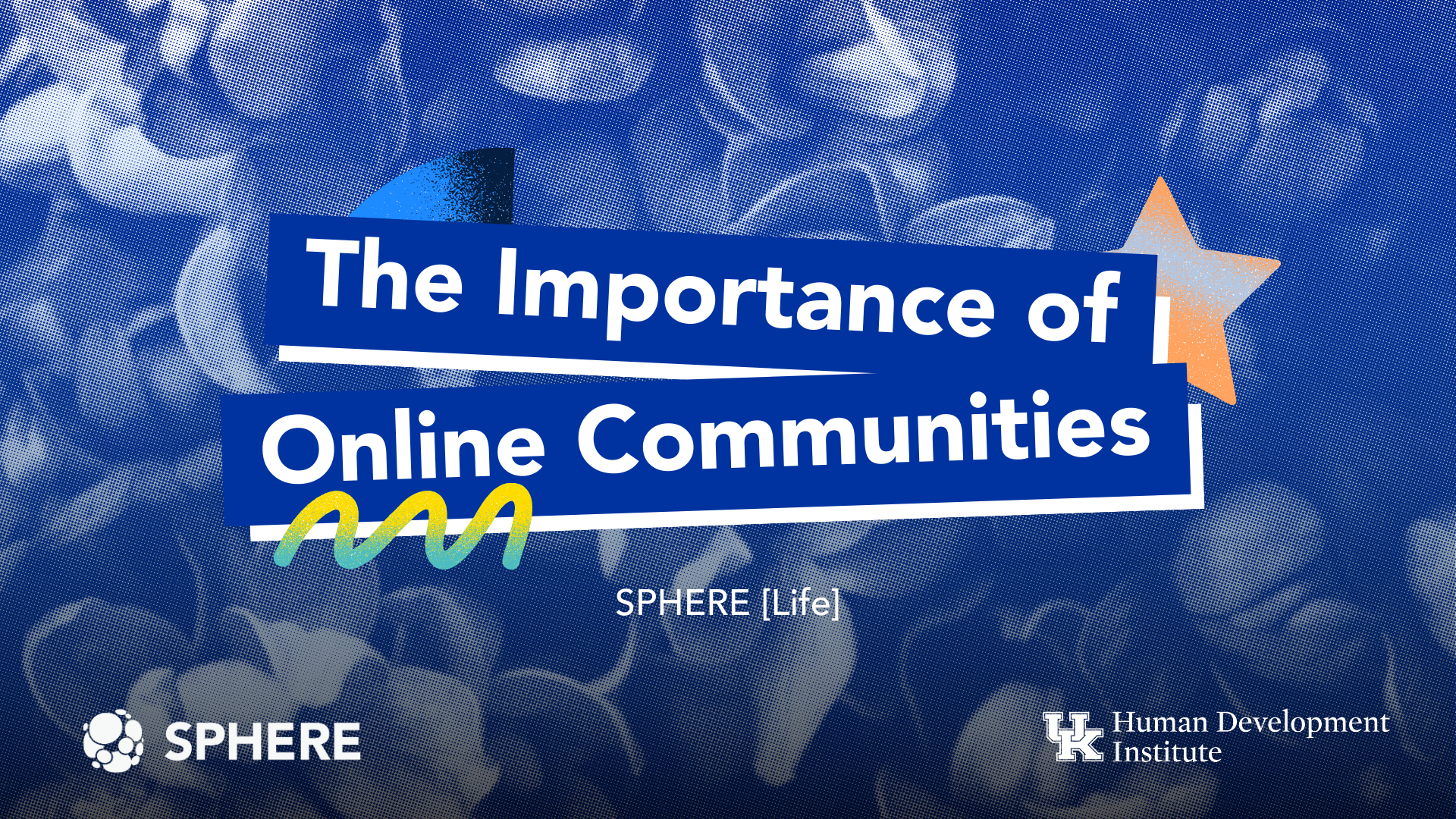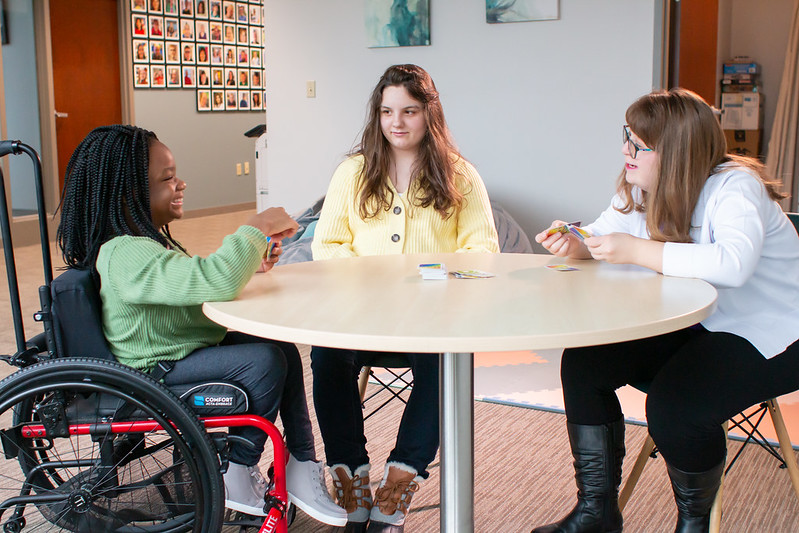Written by Bailey Patterson
Online spaces are an important aspect of the disability community. Thanks to the internet, connection is more accessible and widespread than ever before. This has led to the creation of many online communities where people with disabilities can share their experiences and meet other people. This Disability Pride Month, we explored some ways online disability communities make an impact.
Friendship
The most obvious benefit of online communities is making friends. For some people with disabilities, in person interaction may come with barriers that online spaces may mitigate. Especially in disability-oriented spaces, additional accessibility features such as tone tags and role reactions facilitate easier communication between people who may struggle with social cues or have certain needs within interactions.
Friendship is a source of happiness and comfort and has a positive impact on mental health. For this reason, online friendships can improve the lives of those who find connection in this way.
Crowdsourced Solutions
People with disabilities may face unique challenges across a variety of spaces. In online disability communities, people are able to share problems with accessibility, health, or daily life they may be experiencing and get a variety of perspectives from others who have had a similar experience.
This sharing of expertise is especially important for people with disabilities who are in new life situations, such as attending college or joining the workforce. Hearing from other people with lived experience can make a major difference when it comes to facing a challenge, and can help make someone feel less alone in their journey.
Cross Disability Solidarity
Cross Disability Solidarity occurs when people from different disability groups come together to support one another. For example, Deaf people can find solidarity in people who use mobility aids or neurodivergent people with people with chronic illnesses. Cross Disability Solidarity is important because it increases awareness of needs between different disability groups and allows for better advocacy overall as one disability community.
With the sheer scale and reach that online communities are able to achieve, Cross Disability Solidarity can be successfully facilitated and used as a jumping off point for movements bettering the lives of people with disabilities everywhere.
Organizing
Online communities can be a starting point for real life organization or be spaces for advocacy efforts. For example, organizations such as Neuromancers use entirely online spaces to organize and facilitate peer support groups for people with highly stigmatized mental health experiences such as psychosis or Cluster B personality disorder diagnoses. Being online can make offerings like that more accessible for people who cannot access the outside world and are most safe and comfortable within their homes.
Mutual Aid
Online spaces are able to host large numbers of people, and therefore crowdfunding is possible. In some online disability communities, it’s common to see people raising funds and helping others for things like accessibility aids or medical expenses. The ability to rely on an online community for needs like this can ensure people get the help they need and want who may otherwise not have access to that support in their own in-person community.
Online spaces are a vital aspect of the disability community, offering opportunities for connection, support, and empowerment. The internet has made it possible for people with disabilities to share their experiences, meet others, and build communities that transcend geographical barriers. How are you connecting this Disability Pride Month?


